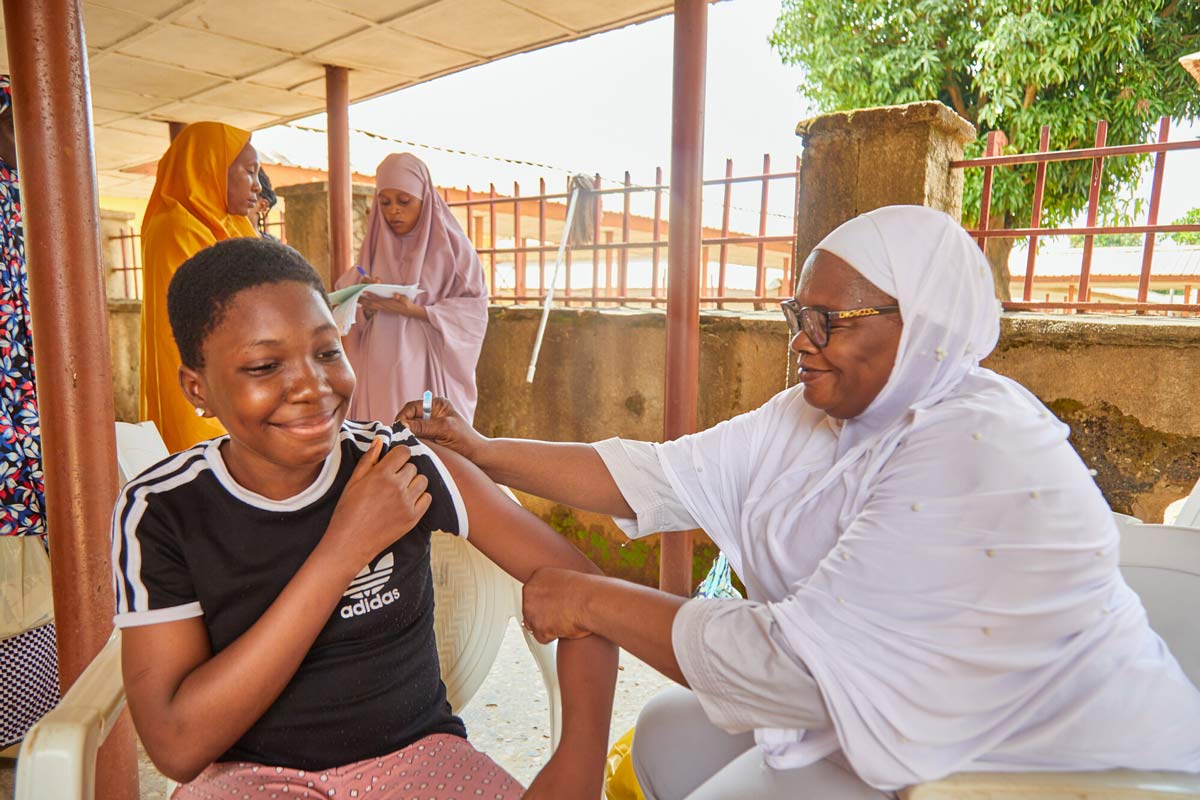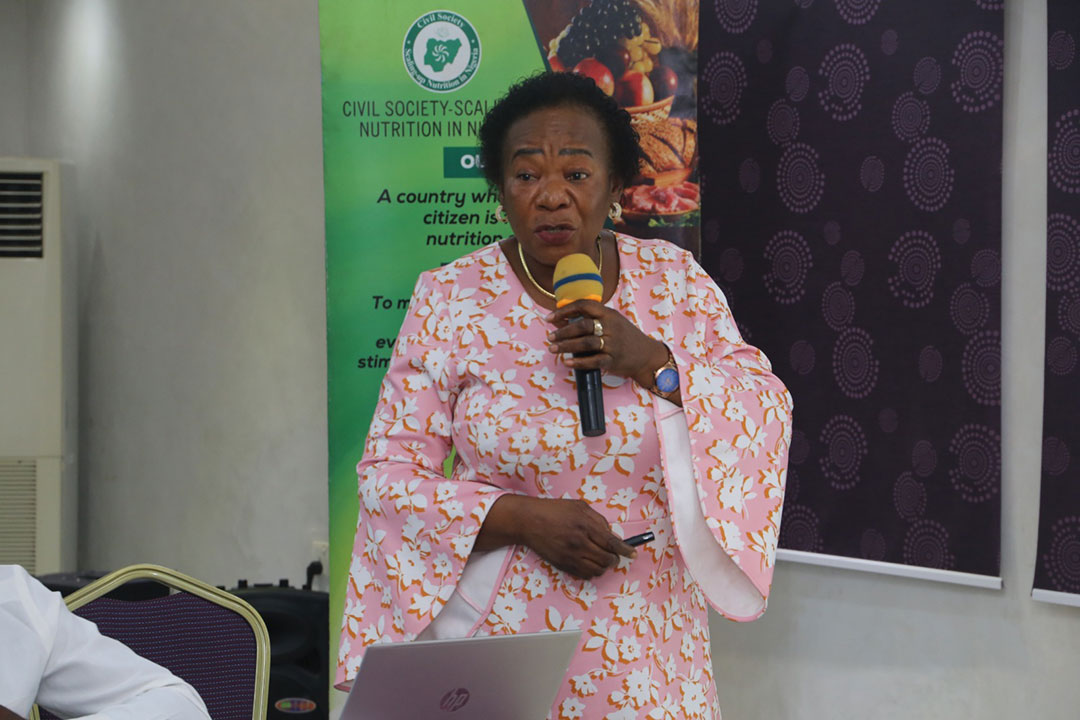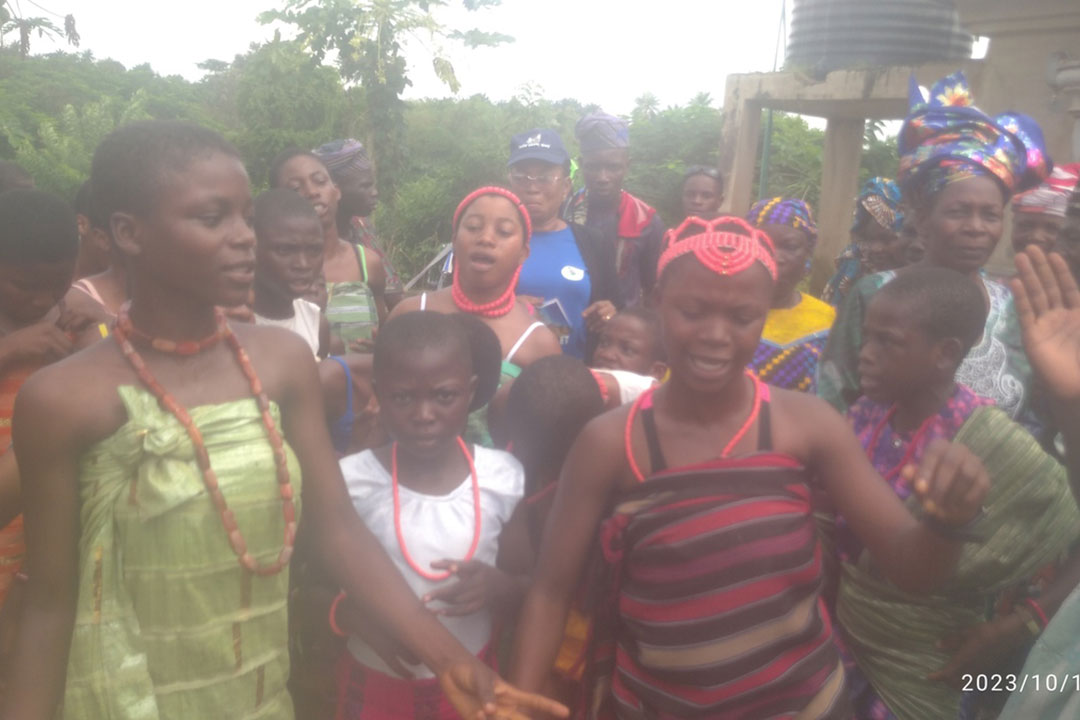The Nigerian town slipping into the sea
Half of coastal Ayetoro is submerged as sea levels rise. Residents of the town known as “Happy City” are doing what they can to keep their spirits up and their health intact.
- 6 December 2023
- 5 min read
- by Royal Ibeh
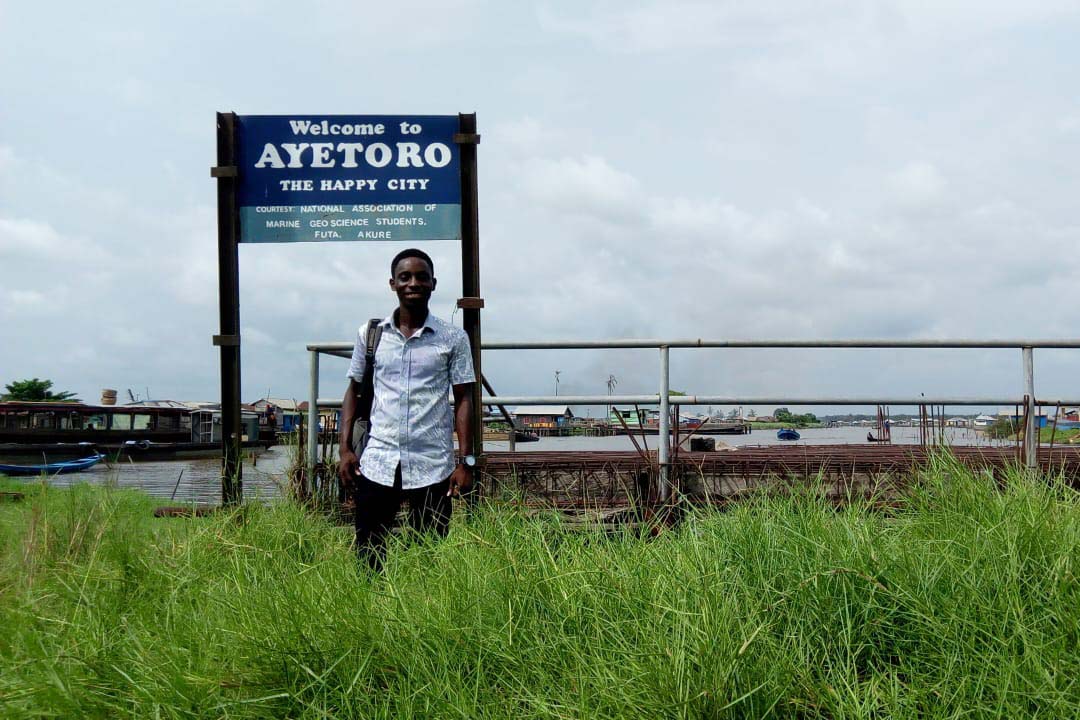
Aralu Emmanuel was born in coastal Ayetoro, a town in Nigeria's Ondo state. He has lived all his life here, in this small town nicknamed "Happy City," and, despite the fact that the sea is threatening to swallow his home, he is not planning to leave anytime soon.
Happy City, half-sunk
"We may not be driving the latest cars, or living in a big mansion, but we are really comfortable here at Ayetoro. We have abundant seafood, and we export [fish] to other parts of the state and country. We are also big in farming of cash crops," Emmanuel told VaccinesWork.
"All this is disappearing before our very eyes, due to climate change."
– Aralu Emmanuel, Ayetoro resident
"We are a communally-organised people and one big family. My children can decide to live with my neighbour and I won't be bothered, because we all see each other as brothers and sisters," he boasted.
"But all this is disappearing before our very eyes, due to climate change", Emmanuel lamented. Half the community, including some factories, houses and schools, are now submerged as sea levels rise.

Credit: Aralu Emmanuel
Ayetoro has been experiencing periodic flooding for approximately 30 years, but it has recently become worse, scientist and environmentalist Mayokun Iyaomolere told VaccinesWork. Many residents have been forced from their homes. Economic and property losses have followed.
Contagion amid the deluge
The community also saw waterborne and vector-borne diseases spike, particularly during the peak of the rainy season. Cholera, diarrhea and malaria rose, Iyaomolere said.
"We constantly live in fear during the rainy season, because we know it is time for flooding again, and we may lose everything we had gathered [during the dry season] from November to March," Emmanuel affirmed.
Getting children jabbed, flood or no flood
While the floods threaten homes and livelihoods, mothers, including Anthonia Ayenumelo, who has a four-month-old baby, are ensuring their babies get jabbed.
Ayenumelo gave birth in mid-July, during the peak of the rainy season. "It was at this time that we had coastal flooding. My previous home, which was located nearer to Ayetoro's Basic Health Centre, is currently underwater. We were forced to relocate to an upland," she lamented.
Have you read?
According to Ayenumelo, "It takes an hour to get from my current house to the health centre. I occasionally take the boat, particularly if the flood doesn't go down. At other occasions, I will hike to the centre once the flood has subsided a few days later. Regardless of whether the water subsides or not, I make it a point to not miss my child's immunisation appointment day, because it is crucial to his survival," she said.
It isn't easy trekking for an hour just to get her baby jabbed, she said, "but everyone in the community is aware of the importance of vaccinations for newborns. So, we made an effort to keep our appointment day."
But Ayenumelo will be grateful if the federal and state government can complete the embankment project to stop the flooding, and enable her to go back to her home.
Journey to reverse trend
"When I was younger, I was constantly considering what small way I could contribute to the flooding crisis at Ayetoro. This was the driving force behind my 'Vulnerability Assessment of Ilaje Communities to Coastal Flooding' Master of Science research project," said Iyaomolere.
"I conducted a field assessment in the neighbourhoods located one kilometre away from the shoreline last year. The sight of individuals [here] trying to live their lives pained me."
Though the coastal flooding is similar to those faced by riverine communities in Nigeria, the scientist said, "What sets us apart is that the waters are constantly pounding on our doors, and we have to stop it."
“It takes an hour to get from my current house to the health centre. I occasionally take the boat, particularly if the flood doesn’t go down. At other occasions, I will hike to the centre once the flood has subsided a few days later. Regardless of whether the water subsides or not, I make it a point to not miss my child's immunisation appointment day, because it is crucial to his survival.”
– Anthonia Ayenumelo, Ayetoro resident and new mother
In his project, Iyaomolere classified the towns of Ilaje Local Government Area, which includes Ayetoro and 13 other communities, based on their levels of vulnerability to population density, physical, social and economic parameters. "My findings showed that all the communities in Ilaje shorelines are very vulnerable to coastal flooding due to SLR [sea level rise]," he revealed.
The scientist recommended that the federal government, together with the Ondo state government, should as a matter of urgency commence the embankment project.
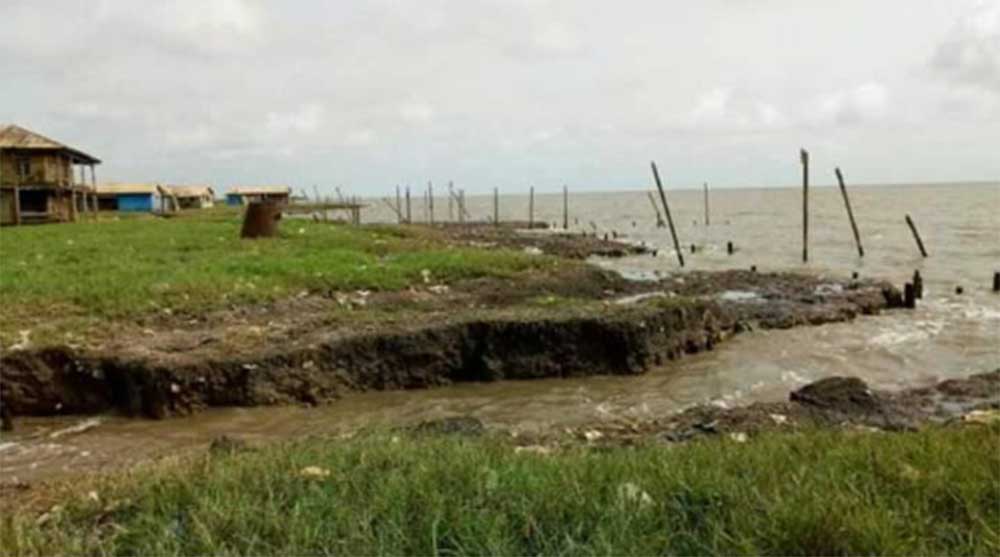
Credit: Mayokun Iyaomolere
The Niger Delta Development Commission (NDDC) had initiated plans to build a physical barrier against the rising tides, but the plans languished uncompleted.
Meantime, Iyaomolere also recommended that government should come up with an Integrated Coastal Zone Management (ICZM) framework for the Ilaje region.
"The framework should be specific to the needs of the Ilaje coastline and include overarching efforts to gradually slow down SLR impacts in the region, through shoreline projects, communities' resettlement when necessary, strong emergency warning systems and allocation of resources to achieve preservation of the coastal area.
"The ICZM is recommended to be open to support from private and international organisations to drive resource availability and effective accountability for managing the climate-induced crisis in the Ilaje coastal area," he advised.
